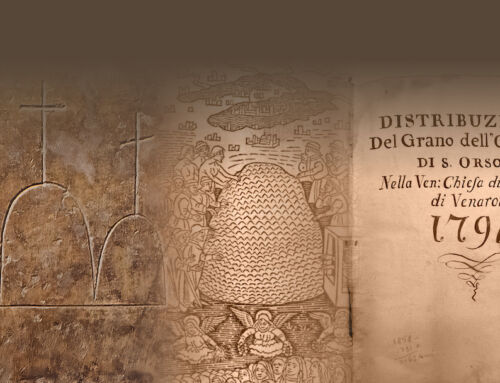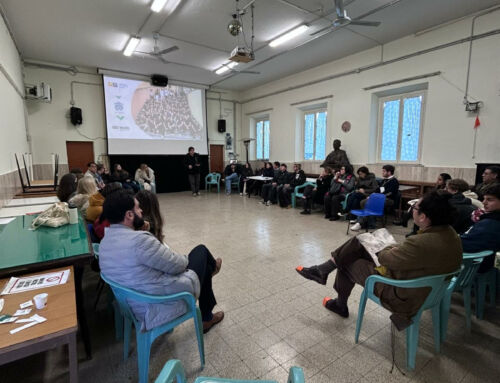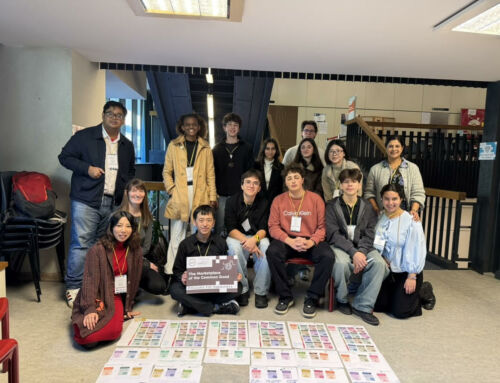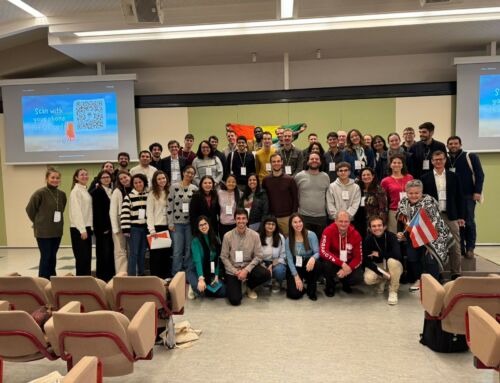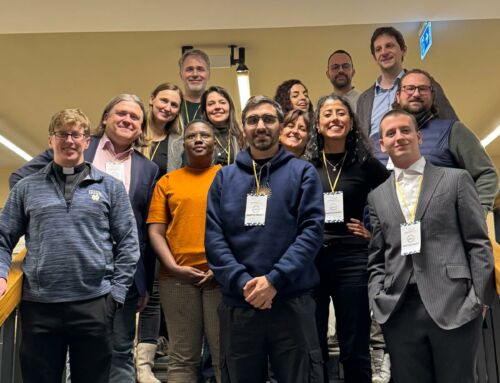To change the economy, we must love it
“The EoF Foundation”: In Pope Francis’ words,
the key to enable the Spirit to give life to our “new bones”
by Chiara Subrizi, economist, member of EoF*
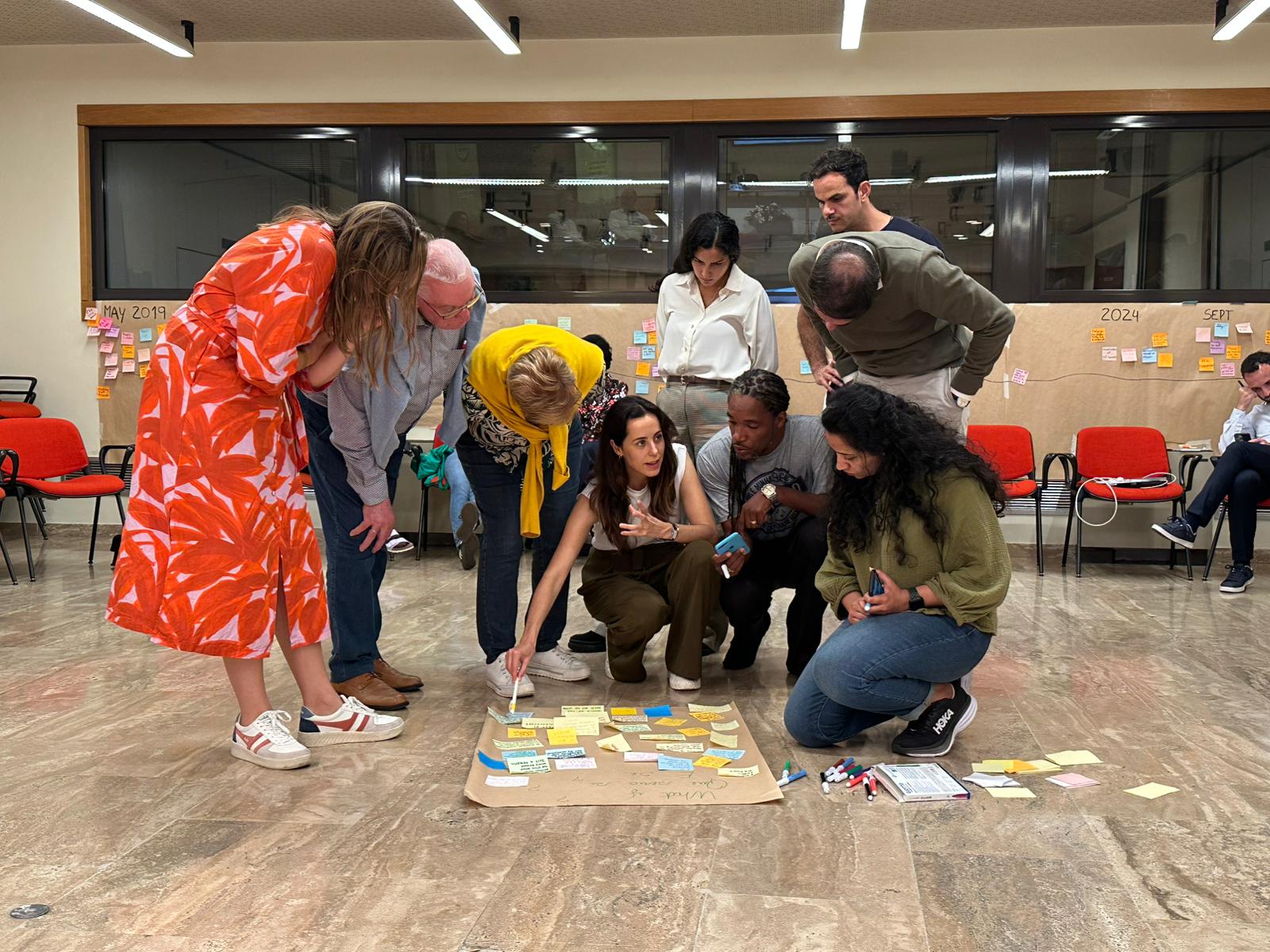
“From your ideals an institution has been born” Pope Francis said beginning his speech to our delegation of young people from The Economy of Francesco during the private audience on September 25.
Indeed, we have become a Foundation. It has not been an easy process. Some of us, including myself, pushed from the beginning for EoF to have a structure, but today I realize that the time was not ripe, and that the Foundation came as the natural fruit of a process that, as Pope Francis often reminds us, is rooted in: “time is greater than space.”
From the consultations of EoF members, held during the Summer of 2023 to prepare the reorganization, a possible “tension” had emerged between structure and spirit, between the need for strong “bones” to grow and the need to allow room for the Spirit to act. I believe that Scripture can provide an answer to this tension, as found in the book of the prophet Ezekiel, which says: “Dry bones, hear the word of the Lord! This is what the Sovereign Lord says to these bones: I will make breath enter you, and you will come to life” (Ez 37:4b-5).
In other words, it is the Spirit that gives life to the bones. Perhaps precisely for this reason, the words that Pope Francis addressed to us focused more on being than on doing, on how to safeguard the Spirit to enable Him to act:
“The world of economics is in need of change. You will not change it only by becoming ministers, Nobel Prize winners or great economists, which are all good things. Rather you will change it above all by loving it. (…) Love the economy, concretely love the workers, the poor, prioritizing the situations of greatest suffering.”
Changing the economy is, then, a matter of love. We often think that we need to know something or someone to love it. However, the opposite is also true: it is because I love that I truly know, as I renounce prejudices and open myself to listening; and only because of this love do I feel called to act and to create change.
There is a figure in the Old Testament who exemplifies this: the scribe Ezra, as it is written in the book of the same name, “had set his heart to study the law of the Lord, to practice it, and to teach its statutes and ordinances in Israel.” (Ezra 7:10). It is loving Scripture (putting the whole heart into it) that allows Ezra to know it deeply, and this knowledge has a practical goal for him! To live that Word heard (to practice the law), and only then to teach and convey it, thus enabling others to act on the change that the Word provokes when welcomed and lived.
Similarly, we young economists are called to love the economy to truly know it and daily living the change we propose to then convey to others our economic vision. If love arises from listening (to the Word as well as to the other), loving the economy means starting from listening to the issues we want to address and to those who experience them – primarily the “cry of the earth and the cry of the poors” (Laudato Si’) – and then analyzing them and producing scientific evidence that gives substance to an economic thought and narrative, which in turn entrepreneurs and change makers will embody in their entrepreneurial and social projects, ultimately translating it into policy proposals.
The change that starts from love is also more effective because it is integral (systemic) and lasting: love does not allow for anyone or anything to be left behind and triggers a process that begins from the small to then reach all sectors, levels, and actors of society, following the logic of the Gospel (from the “smallest of seeds” to a great tree; Mt 13:32).
This “evangelical” method – listening, analysis, narrative, fruits (projects and policies) – which was also the St. Francis’ method – from love, the kiss to the leper, to the transformation of the Church and of the economy – is what, perhaps, we can preserve as a specificity of The Economy of Francesco, continuing to nurture this dual triangle between narrative, projects, and policies and between economists, entrepreneurs, and change makers.
And if the Spirit is love, we can say that we started precisely from love even when, after the meeting with the Pope, we worked on the priorities of EoF as representatives of the Assembly of young people of the Foundation.
To relaunch the future of EoF, in fact, we did not start from our ideas, thoughts, or visions, but from the Spirit; first with a moment of silence and personal prayer or reflection, and then communal. Thirty-five people from 23 different countries could have been a Babel, but instead, it was a Pentecost; so much so that when we shared the priorities to restart from, we were surprised to see how much common ground there was in our visions, even with different expressive modalities and nuances (the richness of our diversity!).
To safeguard all this, I believe the three tasks that the Pope left us can guide us: “be witnesses, do not be afraid, hope without tiring”.
Being witnesses, that is, as said, practicing in our daily life the change born from love, ensuring that there is no distance between who we are and what we do: “If you want other young people to approach the economy with your ideals, (…), it will be your witness of life that will attract them”.
To hope and not to be afraid, not because we do not have reasons to fear or to feel discouraged: the Pope himself told us how aware he is of the “windmills” against which we fight in every field in which we operate – business, academia, political institutions, the Third Sector, professional studies. Rather, to hope is not to absolutize fear; as I know there is Another and others who walk with me, that not everything depends on me and my own strength.
This is the meaning and perhaps, to date, the most important fruit of The Economy of Francesco: to allow others to hope for “a new way of being together and doing business that does not produce waste but material and spiritual well-being,” precisely because we have been the first to receive the gift of rekindling our hope by meeting others who have chosen to walk with us, sowing change in every corner of the world.
Therefore, I hope we can continue to walk in this way, asking the Spirit to discern from time to time “the best part” (Lk 10:42) to live and act on change, starting from seeking “the Kingdom of God and its righteousness” (Mt 6:33) that is, what is small, hidden, but precious – the mustard seed, the treasure in the field, the pearl of great value. Only in this way, we could follow the Pope’s invitation to remain faithful to our vocation, to that personal calling to be economists, entrepreneurs, and change makers that, over these years with EoF, has become a social calling.
And whenever we feel like saying: “Our bones are dried up, and our hope is lost” (Ez 37:12), we can return with our hearts to these days and to the words of the Pope, reminding ourselves instead: “I will put my Spirit within you, and you will live” (Ez 37:14).
—

